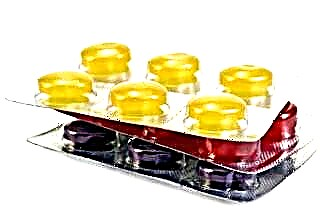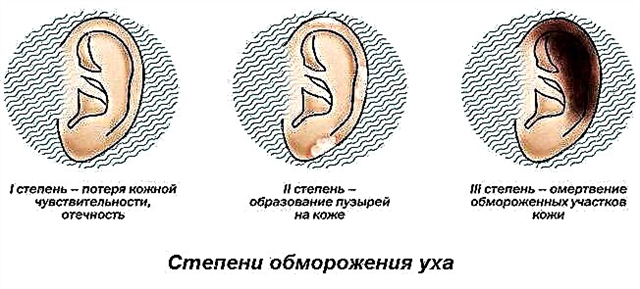Laryngotracheitis is a rather unpleasant and common respiratory disease. It is characterized by severe inflammation of the throat mucosa, which begins from the back of the larynx, and then, if untreated, goes down and can provoke various complications. Antibiotics for laryngotracheitis help to quickly correct the situation, but only if they are prescribed correctly.
Causes of the disease
The most common cause of laryngotracheitis is an infection. It can develop as a consequence of ARI or ARVI. But sometimes more aggressive viruses provoke the disease, for example, chickenpox or rubella, which not only children, but also adults can get sick with. In this case, antiviral drugs will become a real salvation, which must be used when the first signs of the disease appear.
 Bacterial infections are very diverse, but more often laryngotracheitis is provoked by staphylococci, streptococci and chlamydia. It is possible to accurately determine the causative agent of the disease only with laboratory tests. For diagnostic purposes, a bacterial culture of mucus from the throat is carried out. The analysis also allows you to check microorganisms for sensitivity to various groups of drugs and choose the best antibiotic.
Bacterial infections are very diverse, but more often laryngotracheitis is provoked by staphylococci, streptococci and chlamydia. It is possible to accurately determine the causative agent of the disease only with laboratory tests. For diagnostic purposes, a bacterial culture of mucus from the throat is carried out. The analysis also allows you to check microorganisms for sensitivity to various groups of drugs and choose the best antibiotic.
But when an infection enters the upper respiratory tract, laryngotracheitis does not develop in everyone and not always. The reasons contributing to the onset of the disease are:
- chronic respiratory diseases: rhinitis, tonsillitis, sinusitis;
- strong or prolonged overstrain of the vocal cords with loud screaming or technically incorrect singing;
- broncho-pulmonary diseases: bronchitis (acute or chronic), bronchial asthma, pulmonary emphysema, cystic fibrosis;
- constant exposure to external irritants: polluted air, unpleasant odors, chemical fumes, etc. (for example, when working in hazardous industries);
- severe stress, hypothermia, overwork, vitamin deficiency, recent illnesses and operations and other reasons that contribute to a sharp decrease in immunity;
- smoking, alcohol abuse, drug use.
Often the disease cannot be cured until the provocative causes are eliminated. Treatment will bring only temporary relief, and then the disease will return again.
The main symptoms
Laryngotracheitis always begins with an acute form, with pronounced and pronounced symptoms. This allows early detection of the disease and immediate treatment. But don't rush to use antibiotics right away. With the viral nature of the disease, they will not help, but only further weaken the immune defense.
 Therefore, it is better to immediately consult a doctor if you find you have the following symptoms:
Therefore, it is better to immediately consult a doctor if you find you have the following symptoms:
- sudden and sharp rise in temperature up to 38.5-39OWITH;
- sharp sore throat, worse when swallowing;
- a sharp, barking cough of a paroxysmal nature;
- weakness, pallor, dizziness;
- profuse cold sweat after a coughing fit;
- shortness of breath with minimal physical exertion;
- chest pain when you take a deep breath or cough;
- hoarse or hoarse voice (sometimes - its complete loss).
Symptoms such as chills, pain in muscles and joints, nausea, drowsiness, loss of appetite, a sharp decrease in working capacity are possible, but they do not always appear - mainly with the viral nature of the disease.
After a while, the barking cough is replaced by a wet, but just as painful and paroxysmal. A very thick, viscous phlegm accumulates in the throat, which leaves with great difficulty. This causes a persistent sore throat and increases the inflammation of the mucous membranes.
Antibiotic treatment
Only a doctor can prescribe an antibiotic for laryngitis, tracheitis or laryngotracheitis after receiving the results of a diagnostic examination, which confirms the bacterial nature of the disease. If it turns out that the disease is of a viral nature, then antiviral drugs should be taken: Arbidol, Amizon, Anaferon, Ergoferon, etc.
 The analysis will tell the doctor what group of drugs the pathogenic bacteria that have settled in the body will react most quickly. Usually, patients are prescribed drugs of the following groups:
The analysis will tell the doctor what group of drugs the pathogenic bacteria that have settled in the body will react most quickly. Usually, patients are prescribed drugs of the following groups:
- penicillin series: "Amoxil", "Amoxicillin", "Augmentin", "Ampicillin", etc .;
- cephalosporins: Cefuroxime, Cefazolin, Ceftriaxone, etc .;
- macrolides: Sumamed, Clarithromycin, Azithromycin, etc.
The exact name of the drug and its dosage is determined only by the doctor. Instructions and rules for taking the drug must be followed strictly. In case of its overdose, side effects easily occur, and a strong overload of the liver and kidneys is created.
The course of antibiotic treatment is at least 7-10 days, in severe cases it can be extended up to 14 days... But noticeable improvements occur as early as 2-3 days after the start of taking the drugs. If this does not happen, you must immediately inform your doctor. Most likely, the bacteria turned out to be resistant to this group of antibiotics and it is necessary to replace the medicine.
Admission rules
All antibiotics are powerful drugs that require careful and careful handling. Therefore, when accepting them, it is necessary to strictly follow not only the instructions, but also a number of other general rules:
 Maintain the frequency of taking the drug - the time intervals should be equal.
Maintain the frequency of taking the drug - the time intervals should be equal.- Observe the compatibility of the drug with food intake: the instructions always indicate to drink the drug before or after a meal.
- Drinking plenty of fluids will help to quickly neutralize and remove decay products of drugs and toxins.
- Completely exclude alcohol consumption for the period of treatment.
- Follow a liver and kidney-friendly diet: do not eat fried, fatty, spicy and very salty foods.
- Drink the antibiotic only with clean water at room temperature. Milk and some juices can weaken the effect of the drug.
- Do not stop taking the drug immediately after improvement. The remaining bacteria will develop resistance to it and the antibiotic will not work another time.
Antibiotics are usually given in pill form. But in a serious condition, when an immediate effect is needed, the drugs are used in the form of injections.
During the injection, the drug almost immediately enters the bloodstream and begins to act. And the tablet must first dissolve, then be absorbed in the intestines and only after that it becomes active.
In order to compensate for the negative effect of antibiotics on the intestinal microflora, probiotics are additionally prescribed. To quickly relieve sore throat and normalize body temperature, use anti-inflammatory drugs "Nurofen", "Ibuprofen", "Fervex", "Coldrex", etc. At very high temperatures, it is recommended to take antipyretic drugs. Antihistamines, which can also be prescribed if necessary, help relieve severe swelling of the mucous membranes.
Adjunctive therapy
But antibiotics alone, even the most effective ones, are completely insufficient for a quick cure. Therapy should be comprehensive, acting simultaneously on the cause and symptoms of the disease. As additional methods of treatment are used:
- Inhalation. The first remedy to ease breathing, relieve pain, sore throat and swelling of the mucous membranes.The most effective are steam inhalations with soda solution, Borjomi mineral water or decoctions of medicinal herbs: chamomile, eucalyptus, sage. Inhalation lasts 7-10 minutes, and after that the throat should be at rest for at least half an hour: you cannot eat, drink, talk, or go outside.
- Gargling. It helps to wash away thick mucus accumulating there from the back wall of the larynx, moisturizes the mucous membranes, and reduces irritation. For rinsing, it is better to use antiseptic solutions: furacillin, chlorophyllipt, etc. A solution of sea salt (or ordinary table salt with the addition of iodine) is also useful. Gargle at least 5-6 times a day.
 Mucolytic syrups. On the 3-4th day, a dry cough with laryngotracheitis is replaced by a wet one, as viscous mucus begins to form in the throat. Cough syrups help to thin it effectively and speed up its excretion. A good effect is given by "Bronholitin", "Lazolvan", "Ambroxol", "Pertussin". You can dissolve mucaltin tablets or use potions based on this drug.
Mucolytic syrups. On the 3-4th day, a dry cough with laryngotracheitis is replaced by a wet one, as viscous mucus begins to form in the throat. Cough syrups help to thin it effectively and speed up its excretion. A good effect is given by "Bronholitin", "Lazolvan", "Ambroxol", "Pertussin". You can dissolve mucaltin tablets or use potions based on this drug.- Cough drops. Lozenges are a great way to quickly relieve pain and sore throat. Many of them contain antibiotics and so act directly on the lesion. The most commonly used are "Strepsils", "Faringosept", "Septolete" and others.
- Immunomodulators. Promote a rapid increase in the body's immune defenses and help it recover faster from an illness. In this capacity, extracts of Eleutherococcus, Echinacea or Ginseng or complex preparations, for example, "Immunal", can be used. Multivitamin complexes also give a good restorative effect.
Time-tested folk remedies are good helpers: decoctions of medicinal herbs, compresses, rubbing, etc. But in combination with antibiotics, they can be used only with the permission of a doctor, so as not to reduce the effectiveness of treatment.
Only folk remedies can also cure laryngotracheitis, if it is not purulent and has not yet given complications.
In the absence of timely and correct treatment, laryngotracheitis quickly becomes chronic and can provoke the development of serious complications, the most harmless of which is partial or complete loss of voice. It is very difficult to cure a chronic disease, since it is accompanied by mucosal atrophy, and the throat becomes inflamed more and more often, with minimal exposure to internal or external negative factors.

 Maintain the frequency of taking the drug - the time intervals should be equal.
Maintain the frequency of taking the drug - the time intervals should be equal. Mucolytic syrups. On the 3-4th day, a dry cough with laryngotracheitis is replaced by a wet one, as viscous mucus begins to form in the throat. Cough syrups help to thin it effectively and speed up its excretion. A good effect is given by "Bronholitin", "Lazolvan", "Ambroxol", "Pertussin". You can dissolve mucaltin tablets or use potions based on this drug.
Mucolytic syrups. On the 3-4th day, a dry cough with laryngotracheitis is replaced by a wet one, as viscous mucus begins to form in the throat. Cough syrups help to thin it effectively and speed up its excretion. A good effect is given by "Bronholitin", "Lazolvan", "Ambroxol", "Pertussin". You can dissolve mucaltin tablets or use potions based on this drug.

